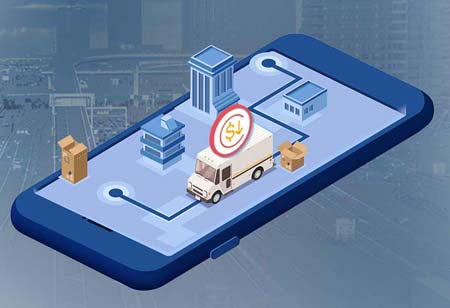Thank you for Subscribing to Hospitality Business Review Weekly Brief
How Can Hospitality CIOs Use Technology Maintain Travel Hospitable?
We will require hotels until virtual reality becomes well-sophisticated

By
Hospitality Business Review | Friday, February 04, 2022
Stay ahead of the industry with exclusive feature stories on the top companies, expert insights and the latest news delivered straight to your inbox. Subscribe today.
We will require hotels until virtual reality becomes well-sophisticated.
FREMONT, CA: Hotels must hold solid technological and physical infrastructures to provide guests' needs. Yet, hospitality is undergoing a technology gap, and the speed of innovation adoption stays limited. Even widespread technology such as guest self-check-in desks, mobile bookings, and RFID hotel key cards have failed to transform the guest experience or mark an important technological breakthrough.
The hospitality industry encounters disputes like low margins and high technology deployment costs, old legacy technology systems and a franchise model that does not encourage technology rollout. These issues slow down innovation and technology adoption. As a result, hotels face difficulties keeping pace with other industries.
Yet, problems also bring opportunities. Clever technology implementation can improve guest experiences and enable hotel brands to emulate the changing culture and business environment. Four key areas hold huge potential:
1. Utilizing artificial intelligence and big data
Artificial Intelligence (AI) can be utilized in many ways in the hospitality industry. For example, revenue management has continually been a key part of hotel operations. AI helps analyze data sets on event information, guest segmentation and behavior, and even weather patterns that help notify predictive yield management systems. Similarly, data emanating from on-property behavior and digital interactions will hasten the utilization of customer relationship management (CRM) and loyalty tools. Likewise, it will allow the hospitality firm to promote loyalty, magnify brand advocacy and offer a proper understanding of the travelers' needs and aspirations.
The AI-powered recognition systems and automatic face recognition software will aid in establishing a more secure check-in/check-out process. Moreover, AI has empowered chatbots and virtual travel assistants to turn more visible, which delivers beyond the tasks like ordering room service or getting information on the flight. This technology is arising to become a true virtual assistant and concierge service across the traveler's journey, like ordering tickets to a display.
2. Designing intelligent buildings
Designing intelligent buildings initiates during design and construction through technology-ready and green building systems and features. It proceeds with the combination of the buildings' operating system, which guarantees that point-of-sale, project management, computerized reservation systems, upkeep work order systems, labor management tools, and accounting software all function together.
The blend of business intelligence and analytics support analyzing guests' online actions before and after the stay. This authorizes the hotels to learn guest behavior as they can readily track the guest, for illustration, where the guest is going for dinner. This helps acquire an outlook on why they didn't select the hotel's restaurant. It also helps track the habits of recurring guests to offer them a room per their taste or keep a check on the flow of people in a convention hotel to improve retail locations in the building.
3. Being gracious in an automated world
Technology in the hospital industry helps make hotels more eco-friendly, secure, and prosperous while improving the human experience in place of substituting it. AI-allowed technology deployment entrusts hotels to free up hotel staff from mundane and repetitious tasks. Instead, it allows them to devote their valuable time to the work that requires more attention.
4. Introduction of robotics to decrease labor cost pressures
The labor costs are continually growing nationally, and the job of outsourcing has evolved to be nearly impossible. Again, moving to cheaper labor markets overseas is also difficult. Hence, hospitality is facing a significant labor problem that automation can resolve.
The factories and warehouses are being automated, and more households are employing robots to accomplish household tasks. Hotels can be further automated, from front desk functions to housekeeping. The hotels can deploy technologies like self-check-in kiosks, automated kitchen prep, robot room-service delivery, improved preventive upkeep plans, and automated room and public area cleaning devices.
Accordingly, AI-powered technology has numerous advantages. Yet, technology should be regarded as a complementary operational strategy. Again, human social interaction should stay the center and underlying foundation of an enterprise driven by presenting excellent service and supplying unique and customized experiences.







